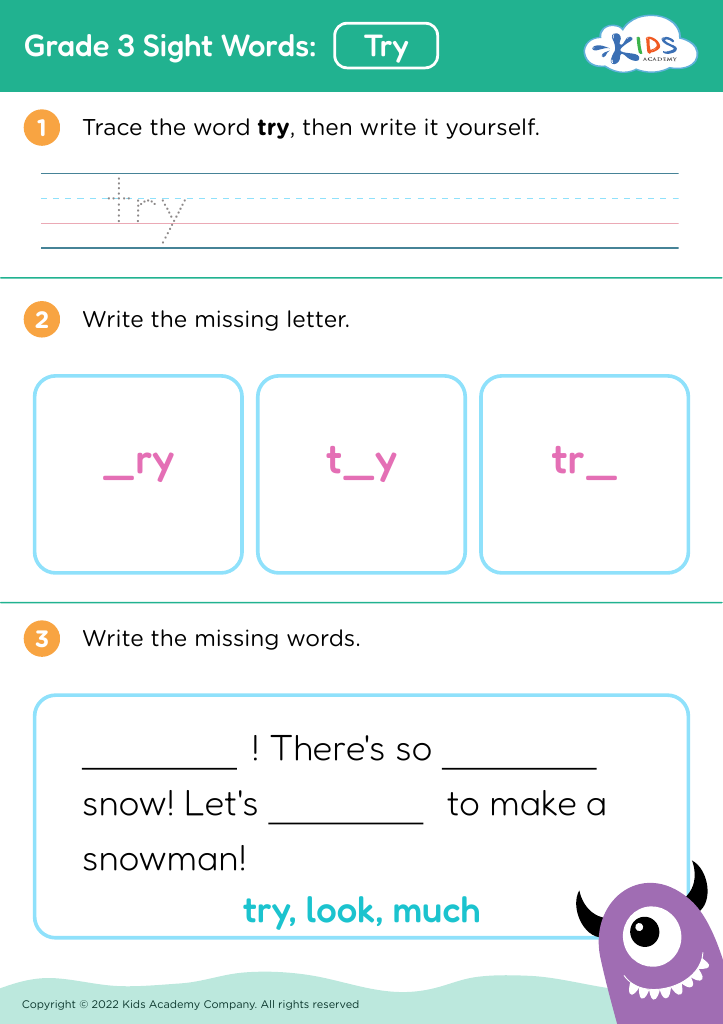Number identification Reading Worksheets for 8-Year-Olds
3 filtered results
-
From - To
Discover our engaging "Number Identification Reading Worksheets for 8-Year-Olds" designed to sharpen your child's math and reading skills! These expertly crafted worksheets combine fun activities with educational content, helping kids recognize and comprehend numbers effortlessly. Each worksheet offers varied exercises, including number matching, sequencing, and word-to-number associations, fostering comprehensive understanding. With colorful illustrations and relatable themes, learning becomes a delightful experience. Ideal for reinforcing classroom lessons or extra practice at home, these printable resources ensure your 8-year-old gains confidence and excels in number identification. Visit Kids Academy now and boost your child's numeracy skills with our effective learning tools!
Number identification and reading are foundational skills that serve as the bedrock for a child's future academic success, especially in subjects like mathematics and science. At 8 years old, children are at a developmental stage where mastering these skills can have far-reaching implications. When parents and teachers prioritize number identification, they provide children with the tools they need to understand more complex mathematical concepts later on. This early math literacy fosters confidence and a positive attitude towards learning, which are crucial for long-term academic achievement.
Additionally, number identification enhances cognitive skills, including memory and problem-solving, by requiring children to recognize, categorize, and understand numerical relationships. Adept number reading also plays an essential role in day-to-day activities, helping children grasp concepts of time, money, and measurement, thereby aiding their practical life skills.
From a social perspective, competence in number identification allows children to actively participate in classroom activities, reducing the risk of falling behind, which can drastically affect their self-esteem and peer relationships. Therefore, fostering number identification and reading from an early age is crucial not just for academic success but also for overall developmental well-being. It's an investment in their educational foundation and future ability to navigate a world where numerical literacy is indispensable.

























